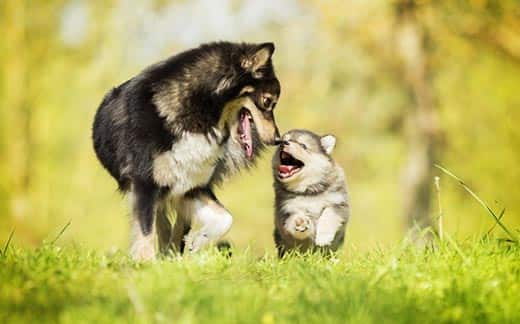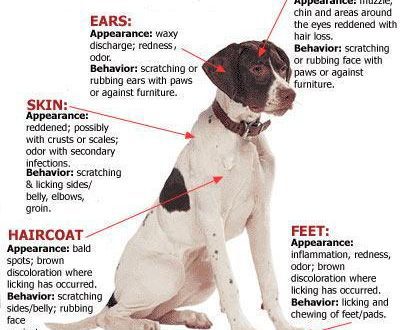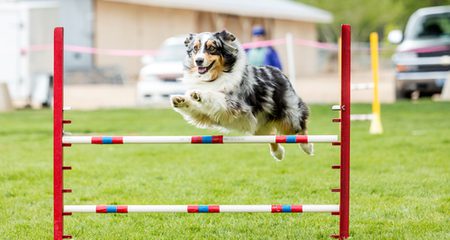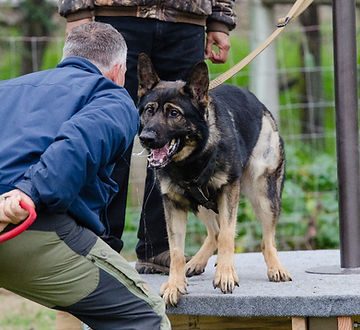
When a puppy becomes an adult dog
Sometimes it is difficult to understand at what age a puppy becomes an adult dog. If he has been living with the family since birth, the owners will notice teething, learning to play ball, toilet training and learning socialization skills.
But with age, the development of the dog is slower and more imperceptible. It is important for the owner to understand the changes that occur at each stage of the development of the pet in order to keep up with his changing needs as he grows up.
Contents
When the puppy grows up
The baby will not reach maturity at lightning speed. Like humans, dogs grow up in stages, although in dogs this transition takes much less time. Pay attention as the puppy grows up to the following factors:
- Puberty. Most dogs become sexually mature by 6 months, when they are still considered puppies, both physically and emotionally. At this point, the puppy’s genitals are already fully formed, which makes him capable of reproduction. This is generally the best time to castrate or spay a dog to avoid unwanted pregnancies and unwanted behaviors, including the desire to roam or mark territory.
- physical maturity. In a physical sense, dogs are fully grown by the time they are 1 year old, although large breeds may continue to grow until 2 years of age. Even after reaching physical maturity, the dog may still behave like a puppy. At the same time, her physical needs, including the daily calorie intake and the amount of activity needed to maintain health, become the needs of an adult dog.
- Emotional maturity. A puppy becomes a dog when it reaches emotional maturity. He stops behaving like a puppy or a teenager and completely enters into the role of an adult dog. Typically, emotionally mature dogs are less distracted, listen and obey better, and behave more calmly and balanced. The exact length of this developmental stage may vary, but most dogs reach emotional maturity by their second birthday.
How to behave with a teenage dog
In puppy development, the period between reaching sexual and emotional maturity is akin to human adolescence. This stage can be quite difficult – sometimes the puppy’s behavior can resemble that of a rebellious teenager. While not all teenage puppies show behavior problems, they are extremely common. When setting boundaries and expectations for behavior, it is important to be patient, firm and consistent.
Meeting the needs of a growing dog: food, grooming, exercise and more
Although the puppy will still have some emotional maturation, his physical needs will become the needs of an adult dog when he reaches physical maturity. To do this, you need to take care of his health.
- Buy food for adult dogs. Growing puppies burn a lot of energy in a day and need a special diet high in protein, fat and calories to keep up with their own growth. When the puppy is fully grown, you should switch him to an adult dog food that will meet his nutritional needs without gaining excess weight. In order to avoid stomach problems, it is best to change the diet slowly, for example, during the week, gradually reducing the amount of puppy food and adding adult dog food to it.
- Monitor your health and visit your veterinarian regularly. Except in cases of illness or injury, healthy adult dogs in their prime usually need to see a veterinarian no more than once a year for an annual checkup. Depending on the situation in the region, an annual rabies booster may also be required. For puppies, veterinarians give a series of vaccinations starting at six to eight weeks of age and ending with the last vaccination at 16 weeks, according to the American Society for the Prevention of Cruelty to Animals (ASPCA).
- Stick to the right amount of physical activity. The physical activity needs of an adult dog vary by size, breed, sex, age and health status, according to the ASPCA. Dogs of some small and toy breeds can meet their exercise needs by simply walking around the house and playing occasionally. Larger dogs generally need at least 30 minutes of active movement per day to stay calm and healthy. An adult dog no longer bursting with the puppies’ desire to run around and explore may need a more regular exercise regimen that includes walking, hiking with their owners, or stick-tossing games in the backyard.
- Buy dog supplies. Depending on how much the dog grows from its puppy size, you may need to invest in new accessories. In addition to a larger collar and leash, a grown dog may need larger food and water bowls, a larger bed, a larger kennel or carrier. Newer toys that are bigger and stronger and can handle tougher games will also work.
The realization that a puppy has become an adult can cause both joy and sadness. But getting to know the character of an adult dog, which the baby turns into, will be no less exciting. Meeting your pet’s changing needs will help set the stage for a warm relationship that will last for years to come.





